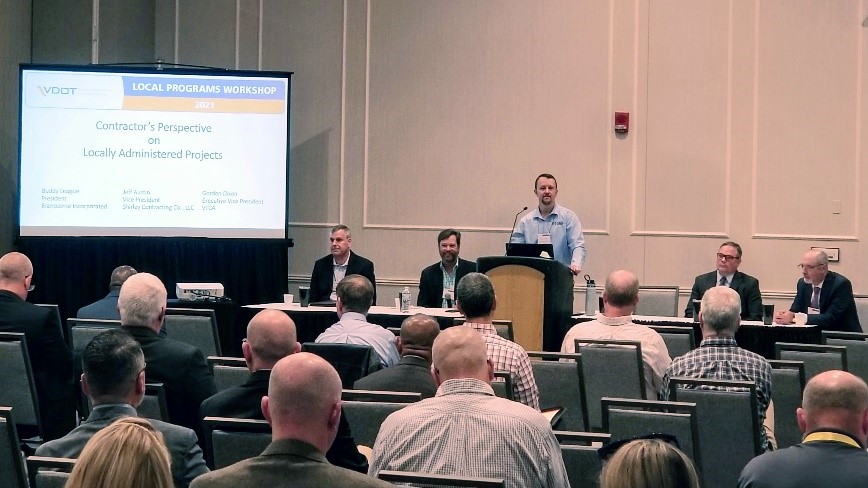VTCA Contactors Share Contracting Insight With Localities
Print this Article | Send to Colleague
A successful construction project doesn’t end when the design is completed. That was the message delivered to attendees during a panel discussion led by Tom Hartman, PE Harrisonburg’s Director of Public Works, Gordon Dixon, VTCA Executive Vice President, and VTCA contractors at last month’s Annual VDOT Local Assistance Workshop in Norfolk.
 |
|
VTCA members Jeff Austin, Shirley Contracting; David Abernathy, Abernathy
|
The panel explored best practices and recommendations for localities to consider in their procurement and administration of the construction phase of projects. Emphasizing the importance of starting with and maintaining a positive relationship between the owner and contractor, the group discussed what to avoid and what to include in their invitations to bid.
VTCA Executive Vice President Gordon Dixon summed up the panel’s message. “Not understanding how the contractors perceive and manage risk on contracts will likely threaten the success of an otherwise well-developed project.”
During Q&A the panel members engaged the audience on the pros and cons of certain procurement methods, including best application of design build and design bid build, and the hidden risks of lump sum contracts. Realizing that a successful project hinges on the construction phase some workshop attendees admitted that they see the project’s bid letting as “reaching the finish line”. However, with the important work of securing funding, programming, and completing the design the panel’s message emphasized that a successful project requires a well thought out, cost efficient and attractive construction procurement.
Over 500 representatives from VDOT, industry and localities attended this year’s Annual Local Assistance Workshop in Norfolk. The workshop focuses on local programs and training for local program management and project development.

